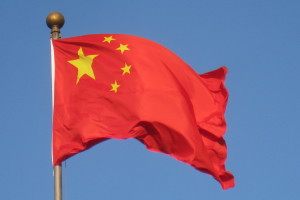The Coming Collapse of China
In a remarkably short time, China has become a world-class manufacturing powerhouse. Not surprisingly, China’s impressive economic growth of 9.5% annually, its widespread economic investments around the world, and its rapid ascent to global power, have caused concern in the western world, especially in the United States. China’s growing appetite for non-renewable resources, and its efforts to achieve global hegemony has added to this anxiety. History demonstrates that when a new great power emerges, uncertainty and conflict follow, because the rise of this new player challenges the status quo. China’s recent successes and its entry onto the global stage have convinced many historians and scholars of international relations – Martin Jacques and Niall Ferguson to name two – that China will inevitably become a global hegemon. I believe it is naive to think that there will be such a thing as a global hegemon. No country or great power can completely dominate the world today. However, the closest a country can come to global hegemony is through regional hegemony. The United States is supposed to be the world’s superpower not because it is dominating the entire world, but because of its complete domination of the western hemisphere. As of now, it has no political, military, and economic rival in its region.
Contrary to conventional wisdom, I argue that China will not dominate the twenty first century nor will it become the hegemon – the political, military, and economic leader – of its region. I maintain that China, after the slow-down of its economic growth, will began to recede and thus play a much more diminished role on the global scene. China’s history demonstrates that the country is a regional hegemon when it is internally stable. When internally unstable, the country is in no position to project its power effectively abroad. One of the major problems the country is currently faced with is Uyghur nationalism and their independence movement.
China’s ability to maintain its economic growth is also in question, and the failure of China’s government to do so would be colossal. Social unrest and political chaos are already looming over China. Even a small political crisis will do serious damage to China’s economic growth. In a recent op-ed article in National Interest, Jonathan Levine raises a critical topic: “Why Reform Eludes China.” Levine’s response is revealing: “The importance of mature institutions in ensuring stable growth is nowhere more visibly on display now than in China, where their failings arguably pose the single greatest challenge for the ruling Communist Party.” China is a fragile power because it has challenges the communist leadership cannot overcome. Unlike western democracies, it is not success in the next election that keeps Chinese leaders awake at night but anxieties about social unrest that could potentially bring down the communist regime.
In addition, China is located on a continent with many regional economic powerhouses – India, Japan, Indonesia, Vietnam and South Korea. These countries, as Fareed Zakaria points out, harbor deep historical mistrust and suspicion towards one another. As China attempts to become the dominant power, these countries will unite in response to China’s growing influence in their backyards. As John Mearsheimer argues in the Tragedy of Great Power Politics, no country can assert the status of the great power in the world, unless it has dominated its own continent first.
Mearsheimer’s theory of international relations, termed “offensive realism,” is based on the inherent fears for survival that arise in the anarchic international system. “Survival is a state’s most important goal, because a state cannot pursue any other goals if it does not survive.” The basic structure of the international system forces states concerned about their security to compete with each other for power. The ultimate goal of every great power is to maximize its share of world power and eventually dominate the system. However, Mearsheimer writes, “Great powers behave aggressively not because they want to or because they possess some inner drive to dominate, but because they have to seek more power if they want to maximize their odds of survival.” It is only through expansion and accumulation of power that a great power can assure its survival.
Can China become the hegemon in its region in the face of these major problems? It will be very trying for the Chinese government to sustain its economic growth and project its power in an effective way in its region. China is plagued with colossal problems ranging from regional power play to a growing middle class who demand political participation. Tackling these issues will be a major challenge for the Chinese Communist Party and there is no reason to worry that China will dominate the world any time soon. For upon closer examination the prospects of the Middle Kingdom achieving global hegemony are not as high as it is thought.
